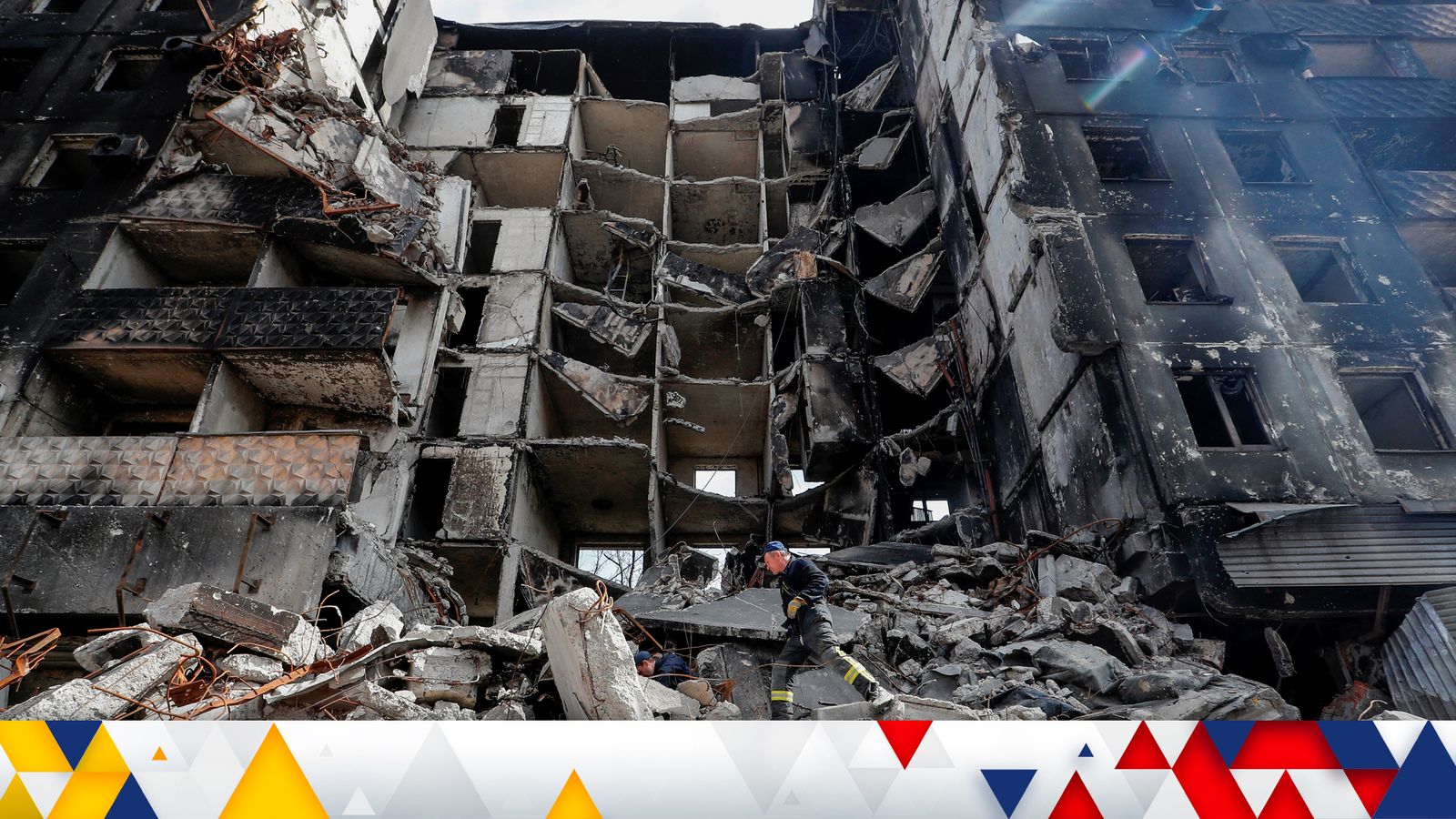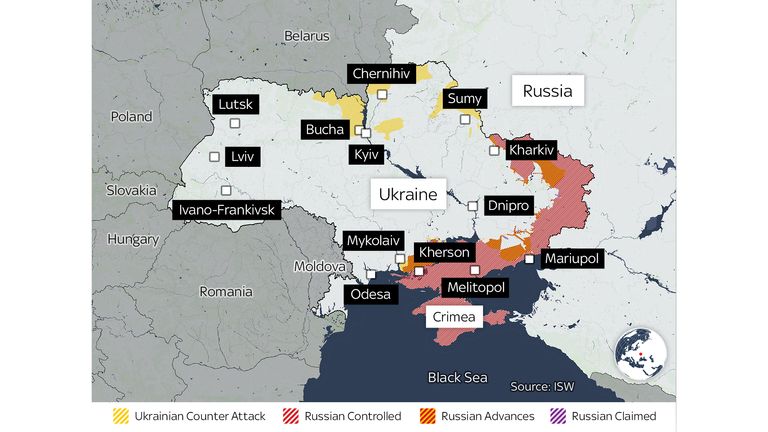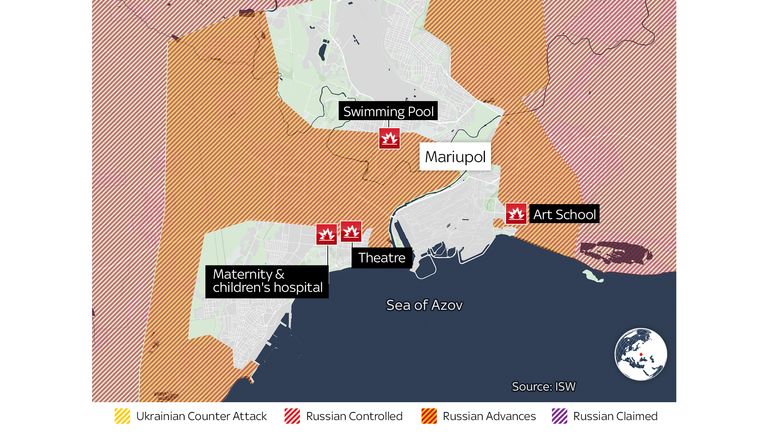The UK is “working urgently” to verify details following unconfirmed reports of a Russian chemical attack in a besieged city in Ukraine, the foreign secretary has said.
Liz Truss said any confirmed use of chemical weapons in Mariupol would be a “callous escalation” of the war.
Volodymyr Zelenskyy, Ukraine’s president, used his nightly video address to warn that Russia could deploy such outlawed weapons, but he did not say they had already done so.
“We treat this with the utmost seriousness,” he said.
“I would like to remind world leaders that the possible use of chemical weapons by the Russian military has already been discussed.
“And already at that time it meant that it was necessary to react to the Russian aggression much harsher and faster.”
Key developments:
• Ukraine’s president Volodymyr Zelenskyy has pleaded for more weapons from the West, particularly for the defence of Mariupol
• Austrian Chancellor Karl Nehammer met Russian President Vladimir Putin and warned that an offensive in Ukraine’s east was “being prepared on a massive scale”
• Allegations of rape, executions, and other war crimes are still coming to light in areas around Kyiv, where the Russians pulled out in recent weeks. Russia says these are Ukrainian and Western provocations.
• Reuters data shows that, while many Western countries have tightened sanctions on Russia, India – lured by massive discounts – has purchased more Russian crude oil since the beginning of the invasion than it did for the whole of last year
• Russia’s foreign minister Sergei Lavrov said Russia would not stop fighting for any new round of peace talks. Talks were last held on 1 April.
• The UK Ministry of Defence said Russian shelling has continued in Donbas but Ukrainian forces have beaten back several assaults and destroyed Russian military vehicles and equipment
Britain and its NATO allies have repeatedly warned that any move by Russian President Vladimir Putin’s troops to deploy chemical weapons would change the nature of the conflict.
The United States has said it would respond, should chemical weapons be used by Russia in Ukraine. The nature of the response would depend upon the nature of the use.
Ms Truss, late on Monday night, chose to highlight unconfirmed reporting on social media from Ukraine about a possible chemical agent being used against the port city of Mariupol, on the country’s south-eastern coast.
“We are working urgently with partners to verify details,” she said on Twitter.
“Any use of such weapons would be a callous escalation in this conflict and we will hold Putin and his regime to account.”
The concern appears to have been prompted by an unconfirmed claim by a Ukrainian battalion, battling to defend Mariupol from a Russian onslaught, that a Russian drone had used a poisonous substance against the city.
There has been no independent verification of the allegation, however.
Mariupol is already the scene of horrific suffering following weeks of conventional Russian bombardments.
The mayor of the city said on Monday that 10,000 civilians have died and the toll could surpass 20,000, with bodies “carpeted through the streets”.
Petro Andryushchenko, an aide to the mayor, said reports about a chemical attack had not been confirmed and that he expected to provide details and clarifications later.
Follow the Daily podcast on Apple Podcasts, Google Podcasts, Spotify, Spreaker
John Kirby, press secretary for the Pentagon, said the United States was aware of the reports.
“We cannot confirm at this time and will continue to monitor the situation closely,” Mr Kirby said.
“These reports, if true, are deeply concerning and reflective of concerns that we have had about Russia’s potential to use a variety of riot control agents, including tear gas mixed with chemical agents, in Ukraine.”
The UK and its allies have raised concerns that Russia might attempt to use chemical weapons in a “false flag” operation that Moscow erroneously blames on the Ukrainian side and then exploits as a further justification for its war against Ukraine.


